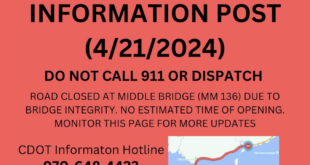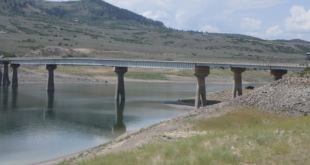Making sure the science behind water quality standards is sound
For two years, U.S. Energy has been conducting a study plan in the Coal Creek Watershed to identify sources of heavy metals, determine whether they’re natural or human-caused, and learn whether human-caused sources are reversible. It’s part of an effort to establish site-specific water quality standards for cadmium, copper and zinc in the lower portion of Coal Creek, and two local organizations have been participating in the process to ensure the mutually-agreed-upon plan is implemented and that the data analysis is comprehensive.
On December 8, High Country Conservation Advocates (HCCA) and the Coal Creek Watershed Coalition (CCWC) participated in a hearing before the State Water Quality Control Commission to evaluate U.S. Energy’s progress on the study plan. Water quality data from the three-year study and other data will be used to create site-specific standards to replace temporary water quality standards that have been in place since the early 2000s and possibly since the 1990s.
“The point of a temporary modification is to be temporary, not on the time span of 10 to 20 years,” explained Ashley Bembeneck, technical coordinator for the CCWC. “Resolving the issue in three to five years is typically the goal.”
Site-specific standards will be created using the results of the study, along with other water quality data, and both HCCA and the CCWC are monitoring the process to ensure that the data analysis is sound and reliable. And while all parties to the hearing—including Colorado Parks & Wildlife and the Water Quality Control Division—agreed that the study plan has generally been implemented as directed, some concerns were identified.
The CCWC completed an independent analysis of the water quality data and submitted a letter to the commission indicating that the study plan’s data analysis did not sufficiently evaluate the potential effect of groundwater—a concern, given the underground workings of the Keystone Mine.
The study plan was designed to include both upgradient and downgradient groundwater monitoring, but the installation of the downgradient well was delayed by about a year and a half until October 2014. That means there was less groundwater data than expected.
“We successfully argued that [U.S. Energy’s data analysis] was not comprehensive enough,” Bembenek explained, adding that Colorado Parks & Wildlife and the Water Quality Control Division testified in support of the organization’s analysis of the data.
HCCA water program director Julie Nania says HCCA is also concerned about the ground water monitoring, in part because the exact location of the downgradient well is unclear. She said, “We know the general vicinity and were told from U.S. Energy that it’s going to intercept the water we’re looking at, but we don’t really know the exact location of the installed well.”
HCCA also advocated for more and better communication between stakeholders. With one year left in the study plan, the organization wanted to ensure that things stay on track.
“We missed three sampling periods because of that delay,” Nania explained. “We’d like to make sure we don’t have more delays and that any changes to the study plan are still going to provide the same robust data as the initial study plan would have.”
In response, the Water Quality Control Division offered to facilitate three meetings during 2015 to make sure that all official parties and the public have input. That will give HCCA and the CCWC the opportunity to assess future groundwater data, and keep all parties apprised of any changes.
“I can’t stress how important it is to continue working towards the establishment of final site-specific standards,” Nania said. And that, she added, requires sound methods, data collection and analysis. The first meeting will likely occur in early 2015.
 The Crested Butte News Serving the Gunnison Valley since 1999
The Crested Butte News Serving the Gunnison Valley since 1999





